Breast Cancer
How to submit an article:
- Registered users can submit any published journal article that has a unique DOI (Digital Object Identifier) name or link to Research Hub.
- For example, you can paste the full DOI link:
https://doi.org/10.1109/5.771073or just the DOI name:10.1109/5.771073into the field above and click submit. - The person who is first to submit a valid article to Research Hub will forever be credited for it, and every article submission earns you +6 Research Points.
Related Topics
Published research studies are articles that present the findings of original research that has undergone a peer-review process and has been made publicly available in scholarly journals, books or other media.
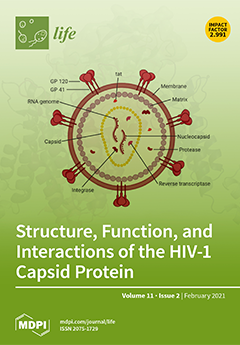
Therapeutic Potential of Pomegranate Extract for Women’s Reproductive Health and Breast Cancer
2024 Oct 03 Life Jang JY, Kim D, Im E, Kim ND
Review Article PCOS Breast Cancer PomegranatePomegranate extract could potentially benefit women's reproductive health, enhance fertility, regulate menstrual cycles, support pregnancy, and help treat polycystic ovary syndrome.

Manuka Honey Inhibits Human Breast Cancer Progression in Preclinical Models
2024 Jul 22 Nutrients Márquez-Garbán DC, Yanes CD, Llarena G, Elashoff D, Hamilton N, Hardy M, et al.
Animal Study Experimental Study Honey Breast CancerManuka honey has demonstrated the potential to inhibit the proliferation of human breast cancer cells and stimulate apoptosis in these cells.
Benefits of Soybean in the Era of Precision Medicine: A Review of Clinical Evidence
2023 Aug 28 Journal of Microbiology and Biotechnology Kang JH, Dong Z, Shin SH
Review Article Osteoporosis Soybean Breast Cancer Hot Flushes Type 2 DiabetesSoybean intake can potentially reduce risks of several cancers, type 2 diabetes, osteoporosis, and hot flashes, and it may negatively impact some drug treatments and cause allergies.
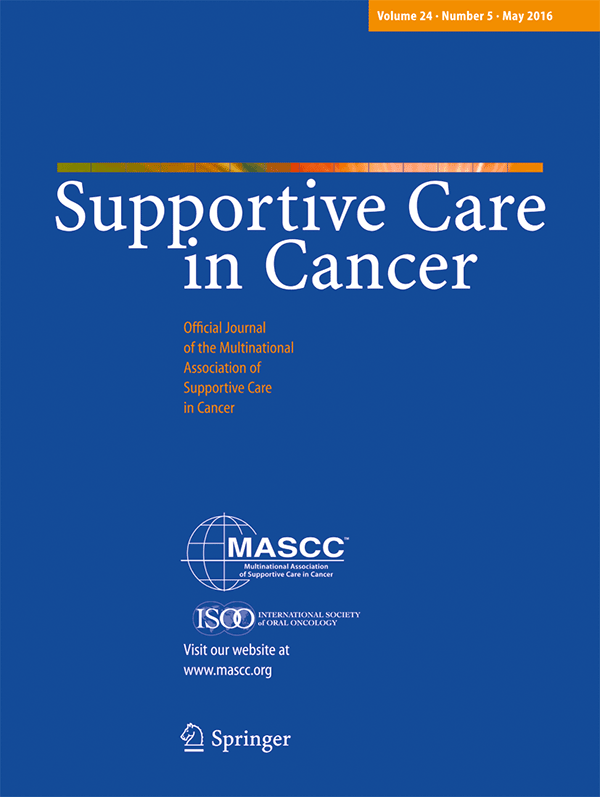
Acupuncture improves immunity and fatigue after chemotherapy in breast cancer patients by inhibiting the Leptin/AMPK signaling pathway
2023 Aug 05 Supportive Care in Cancer Li J, Fu R, Guo X, Pan Z, Xie J
The Leptin/AMPK signaling pathway is identified as a key molecular pathway affecting fatigue after chemotherapy in breast cancer patients; acupuncture treatment effectively improves post-chemotherapy fatigue, immune status, and reduces mitochondrial DNA mutations.
Experimental Study Clinical Study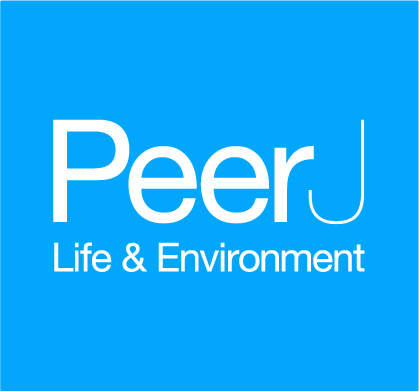
Advances on the anti-tumor mechanisms of the carotenoid Crocin
2023 Jun 29 PeerJ Bao X, Hu J, Zhao Y, Jia R, Zhang H, Xia L
Review Article Crocin Liver Cancer Saffron Breast Cancer Stomach Cancer Colorectal Cancer Cervical Cancer Anti-TumourCrocin, a compound derived from saffron, has shown considerable potential in hindering tumor growth and improving immune status, across various malignant tumors.
Research insights are moderated by the Research Hub team and offer an at-a-glance overview of interesting research findings.

2024 Life
Pomegranate extract could potentially benefit women's reproductive health, enhance fertility, regulate menstrual cycles, support pregnancy, and help treat polycystic ovary syndrome.
Review Article PCOS Pomegranate
Therapeutic Potential of Pomegranate Extract for Women’s Reproductive Health and Breast Cancer
Jang JY, Kim D, Im E, Kim ND

2024 Nutrients
Manuka honey has demonstrated the potential to inhibit the proliferation of human breast cancer cells and stimulate apoptosis in these cells.
Animal Study Honey
Manuka Honey Inhibits Human Breast Cancer Progression in Preclinical Models
Márquez-Garbán DC, Yanes CD, Llarena G, Elashoff D, Hamilton N, Hardy M, et al.
2023 Journal of Microbiology and Biotechnology
Soybean intake can potentially reduce risks of several cancers, type 2 diabetes, osteoporosis, and hot flashes, and it may negatively impact some drug treatments and cause allergies.
Review Article Hot Flushes Osteoporosis Soybean Type 2 Diabetes
Benefits of Soybean in the Era of Precision Medicine: A Review of Clinical Evidence
Kang JH, Dong Z, Shin SH

2023 PeerJ
Crocin, a compound derived from saffron, has shown considerable potential in hindering tumor growth and improving immune status, across various malignant tumors.
Review Article Anti-Tumour Cervical Cancer Colorectal Cancer Crocin Liver Cancer
Advances on the anti-tumor mechanisms of the carotenoid Crocin
Bao X, Hu J, Zhao Y, Jia R, Zhang H, Xia L
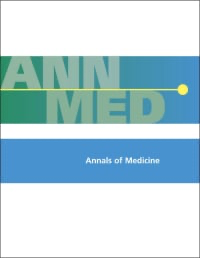
2023 Annals of Medicine
Consuming dairy products might reduce the risk of developing breast cancer.
Systematic Review Dairy
The association between breast cancer and consumption of dairy products: a systematic review
Arafat HM, Omar J, Shafii N, Naser IA, Al Laham NA, Muhamad R, et al.
Review Articles
Review articles summarise and critically evaluate the current state of research on a specific topic or field by synthesising multiple primary research studies.

Therapeutic Potential of Pomegranate Extract for Women’s Reproductive Health and Breast Cancer
2024 Oct 03 Life Jang JY, Kim D, Im E, Kim ND
Review Article PCOS Breast Cancer PomegranatePomegranate extract could potentially benefit women's reproductive health, enhance fertility, regulate menstrual cycles, support pregnancy, and help treat polycystic ovary syndrome.
Benefits of Soybean in the Era of Precision Medicine: A Review of Clinical Evidence
2023 Aug 28 Journal of Microbiology and Biotechnology Kang JH, Dong Z, Shin SH
Review Article Osteoporosis Soybean Breast Cancer Hot Flushes Type 2 DiabetesSoybean intake can potentially reduce risks of several cancers, type 2 diabetes, osteoporosis, and hot flashes, and it may negatively impact some drug treatments and cause allergies.

Advances on the anti-tumor mechanisms of the carotenoid Crocin
2023 Jun 29 PeerJ Bao X, Hu J, Zhao Y, Jia R, Zhang H, Xia L
Review Article Crocin Liver Cancer Saffron Breast Cancer Stomach Cancer Colorectal Cancer Cervical Cancer Anti-TumourCrocin, a compound derived from saffron, has shown considerable potential in hindering tumor growth and improving immune status, across various malignant tumors.

The association between breast cancer and consumption of dairy products: a systematic review
2023 Apr 20 Annals of Medicine Arafat HM, Omar J, Shafii N, Naser IA, Al Laham NA, Muhamad R, et al.
Systematic Review Breast Cancer DairyConsuming dairy products might reduce the risk of developing breast cancer.
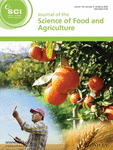
Carrot and carotene and multiple health outcomes: an umbrella review of the evidence
2023 Jan 17 Journal of the Science of Food and Agriculture Yi X, Li J, Liao D, Peng G, Zheng X, Xu H, et al.
Review Article Cataracts Carotene Lung Cancer Carrot Anticancer Stomach Cancer Breast Cancer Alzheimer's Disease Urothelial Cancer SunburnCarrot and carotene consumption could diminish the risk of a wide range of negative health consequences, including multiple types of cancer.
Clinical Trials
Clinical trials are research studies that involve people and are conducted to evaluate the safety and efficacy of new treatments or interventions, such as drugs, medical devices, or behavioural therapies.

Acupuncture for chemotherapy-associated insomnia in breast cancer patients: an assessor-participant blinded, randomized, sham-controlled trial
2023 Apr 26 Breast Cancer Research Zhang J, Qin Z, So TH, Chang TY, Yang S, Chen H, et al.
The active acupuncture regimen, combining needling into body acupoints and acupressure on auricular acupoints, was not superior to sham control in reducing the Insomnia Severity Index (ISI) score from baseline to 6 weeks. However, it produced short-term treatment and long-term follow-up better outcomes in improving sleep onset latency, total sleep time, sleep efficiency, anxiety, depression, and quality of life. Participants in the active acupuncture group had a higher cessation rate of sleeping medications than the sham control, indicating that acupuncture could be an effective option for managing chemotherapy-associated insomnia and serve as a tapering approach to reduce the use of sleeping medications in breast cancer patients.
Randomised Controlled Trial Breast Cancer Chemotherapy-Associated Insomnia Acupuncture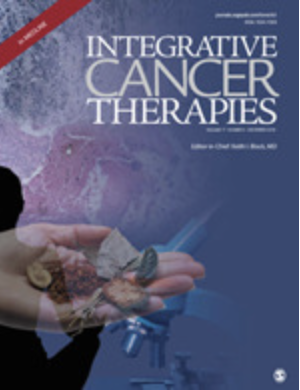
Electroacupuncture Plus Auricular Acupressure for Chemotherapy-Associated Insomnia in Breast Cancer Patients: A Pilot Randomized Controlled Trial
2021 Jan Integrative Cancer Therapies Zhang J, Qin Z, So TH, Chen H, Lam WL, Yam LL, et al.
Acupuncture demonstrated significant improvements in the Insomnia Severity Index (ISI) scores, total sleep time, Pittsburgh Sleep Quality Index (PSQI) scores, Hospital Anxiety and Depression Scale (HADS) depression scores, and Functional Assessment of Cancer Therapy-Breast Cancer (FACT-B) scores compared to the wait-list control group. The study suggests that acupuncture is safe, feasible, and effective for chemotherapy-associated insomnia in breast cancer patients, warranting further confirmation through a larger sample size randomized clinical trial.
Randomised Controlled Trial
ATAS Acupuncture Reduces Chemotherapy Induced Fatigue in Breast Cancer Through Regulating ADROA1 Expression: A Randomized Sham-Controlled Pilot Trial
2020 Nov OncoTargets and Therapy Li YF, Liu DQ, Nie JY, Chen DD, Yan M, Zuo Z, et al.
ATAS acupuncture was shown to be effective in improving symptoms, including fatigue, anxiety, and insomnia throughout the chemotherapy process, with the ATAS acupuncture group exhibiting decreased VAS-F scores and lower MFI-20 scores compared to the sham and non-acupuncture groups. The mechanism of ATAS acupuncture's fatigue reduction may be associated with the ADROA1 gene, regulating the cGMP/PKG pathway.
Randomised Controlled Trial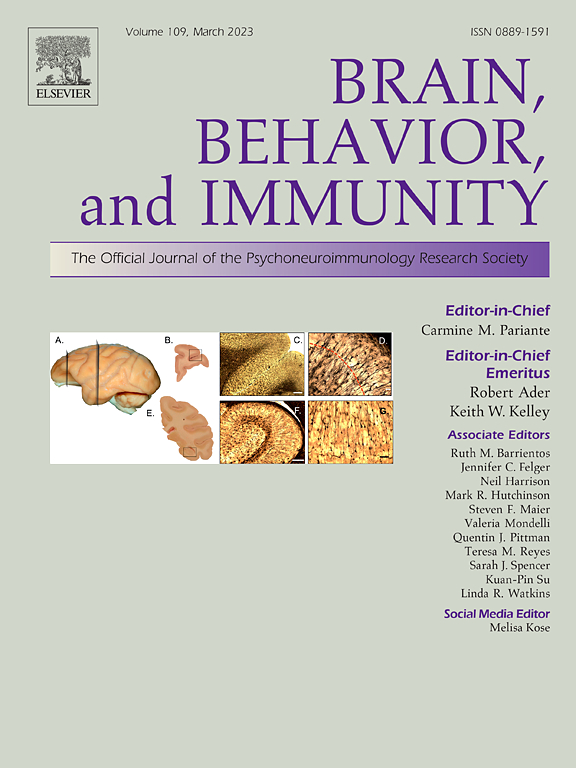
Electroacupuncture trigeminal nerve stimulation plus body acupuncture for chemotherapy-induced cognitive impairment in breast cancer patients: An assessor-participant blinded, randomized controlled trial
2020 Aug Brain, Behavior, and Immunity Zhang ZJ, Man SC, Yam LL, Yiu CY, Leung RCY, Qin ZS, et al.
Results suggest that EA/TNS + BA may have particular benefits in reducing chemotherapy-induced working memory impairment and the incidence of certain digestive, neurological, and distress-related symptoms. It could serve as an effective intervention for breast cancer patients under and post chemotherapy
Randomised Controlled Trial Cognitive Function Acupuncture Breast Cancer Chemotherapy
The Effect of Peppermint (Mentha piperita) Extract on the Severity of Nausea, Vomiting and Anorexia in Patients with Breast Cancer Undergoing Chemotherapy: A Randomized Controlled Trial
2020 Jan Integrative Cancer Therapies Jafarimanesh H, Akbari M, Hoseinian R, Zarei M, Harorani M
The study concludes that the use of peppermint as a complementary medicine method may significantly improve the severity of nausea, vomiting, and anorexia in patients with breast cancer undergoing chemotherapy.
Randomised Controlled Trial Nausea Breast Cancer Cancer Treatment Support PeppermintStudy Protocols
Published study protocols are detailed plans that outline the objectives, methodology, statistical analyses, and organisation of a research study that have been made publicly available for others to review and use as a reference.
Presentation Slides

Review Article
Pomegranate extract could potentially benefit women's reproductive health, enhance fertility, regulate menstrual cycles, support pregnancy, and help treat polycystic ovary syndrome.
Jang JY, Kim D, Im E, Kim ND

Animal Study
Manuka honey has demonstrated the potential to inhibit the proliferation of human breast cancer cells and stimulate apoptosis in these cells.
Márquez-Garbán DC, Yanes CD, Llarena G, Elashoff D, Hamilton N, Hardy M, Wadehra M, McCloskey SA, Pietras RJ

Review Article
Soybean intake can potentially reduce risks of several cancers, type 2 diabetes, osteoporosis, and hot flashes, and it may negatively impact some drug treatments and cause allergies.
Kang JH, Dong Z, Shin SH

Review Article
Crocin, a compound derived from saffron, has shown considerable potential in hindering tumor growth and improving immune status, across various malignant tumors.
Bao X, Hu J, Zhao Y, Jia R, Zhang H, Xia L

Systematic Review
Consuming dairy products might reduce the risk of developing breast cancer.
Arafat HM, Omar J, Shafii N, Naser IA, Al Laham NA, Muhamad R, Al-Astani TAD, Shaqaliah AJ, Shamallakh OM, Shamallakh KM, Abusalah MAH
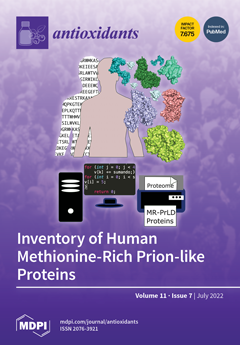
Clinical Study
Preclinical studies related to osteoporosis have reported favorable effects of honey on cortical and trabecular bone microstructure, bone strength, and oxidative stress.
Martiniakova M, Kovacova V, Mondockova V, Zemanova N, Babikova M, Biro R, Ciernikova S, Omelka R

Clinical Study
Clinical studies related to breast cancer have revealed that honey is effective in increasing blood cell counts, interleukin-3 levels, and quality of life.
Martiniakova M, Kovacova V, Mondockova V, Zemanova N, Babikova M, Biro R, Ciernikova S, Omelka R

Review Article
Carrot and carotene consumption could diminish the risk of a wide range of negative health consequences, including multiple types of cancer.
Yi X, Li J, Liao D, Peng G, Zheng X, Xu H, Zhang T, Ai J
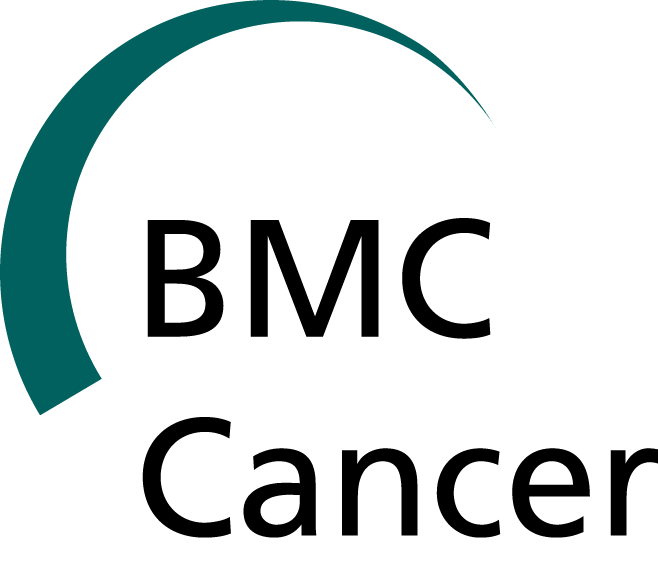
Systematic Review
D-Limonene, a bioactive compound found in citrus peels, shows potential anticancer activity and is better tolerated in breast cancer patients compared to its derivative perillyl alcohol.
Chebet JJ, Ehiri JE, McClelland DJ, Taren D, Hakim IA
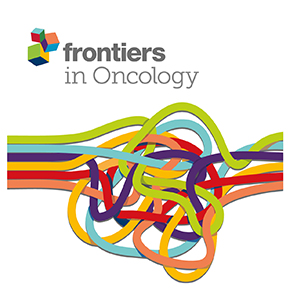
Systematic Review
Current evidence suggests that acupuncture might improve breast cancer treatment-related symptoms measured with patient-reported outcomes including quality of life, pain, fatigue, hot flashes, sleep disturbance and anxiety.
Zhang Y, Sun Y, Li D, Liu X, Fang C, Yang C, Luo T, Lu H, Li H, Zhang H, Liang Q, Wu J, Huang L, Xu R, Ren L, Chen Q

Clinical Study
Pomegranate polyphenols have shown strong potential in preventing and treating breast cancer through various anti-cancer effects.
Moga MA, Dimienescu OG, Bălan A, Dima L, Toma SI, Bîgiu NF, Blidaru A
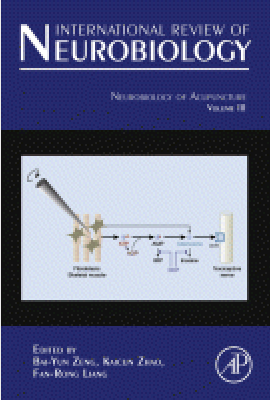
Review Article
Goji berries have significant potential as a natural medicine in anticancer efforts due to their high content of active compounds.
Anna Wawruszaka,Marta Halasaa,Karolina Oklab

Review Article
Isoflavones, mainly found in soy-derived products, show beneficial effects on bone health, potential cancer risk reduction, and alleviation of menopausal symptoms, but not on cardiovascular risk.
Gómez-Zorita S, González-Arceo M, Fernández-Quintela A, Eseberri I, Trepiana J, Portillo MP

Systematic Review
The pooled results suggested that acupuncture led to moderate improvements in hot flashes, fatigue, and stiffness.
Yuanqing P, Yong T, Haiqian L, Gen C, Shen X, Dong J, Qi C, Miaomiao Q.

Systematic Review
This systematic review and meta-analysis provides evidence that acupuncture moxibustion therapy is serviceable and safe in treating breast cancer-related lymphedema.
Huimin Jin, Yuying Xiang, Yuqian Feng, Yiting Zhang, Shan Liu, Shanming Ruan, Huamiao Zhou
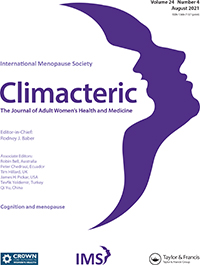
Systematic Review
Acupuncture significantly alleviated breast cancer treatment-related menopause symptoms for at least 3 months, but not hot flushes.
Chien TJ, Liu CY, Fang CJ, Kuo CY
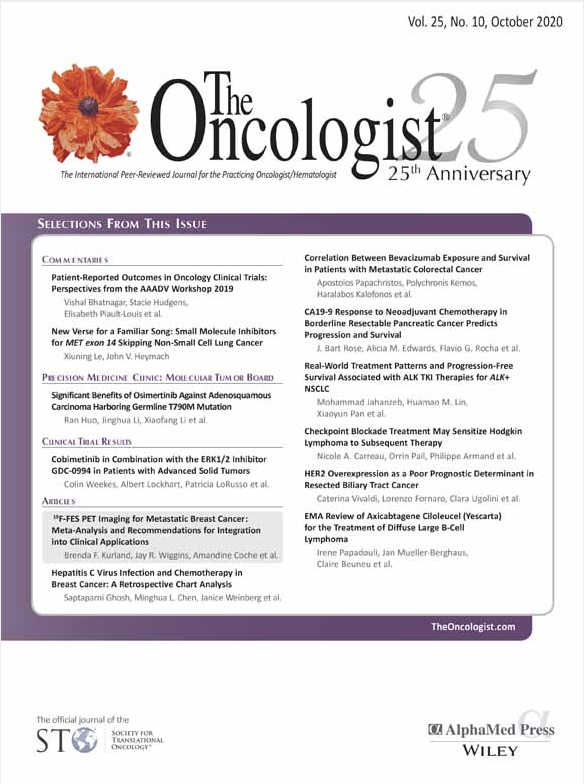
Randomised Controlled Trial
Acupuncture treatment significantly improves neuropathic symptoms in women suffering from chemotherapy-induced peripheral neuropathy after breast cancer therapy.
Lu W, Giobbie-Hurder A, Freedman RA, Shin IH, Lin NU, Partridge AH, Rosenthal DS, Ligibel JA
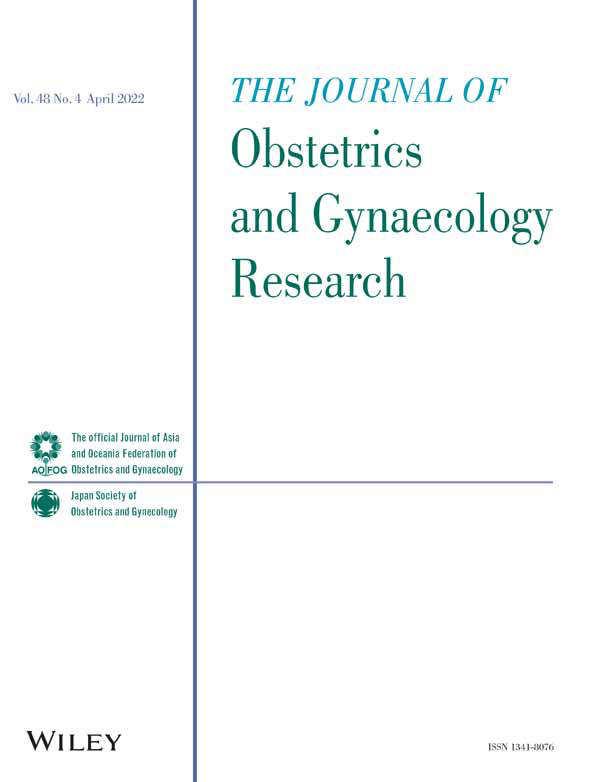
Systematic Review
Acupuncture intervention could significantly improve the treatment outcomes for breast cancer-related lymphedema, regardless of the control treatments used.
Hou W, Pei L, Song Y, Wu J, Geng H, Chen L, Wang Y, Hu Y, Zhou J, Sun J

We showed that Angelica sinensis is not that stimulatory in breast cancer both in vitro and in vivo, though Angelica sinensis should still be used with caution in estrogen receptor-positive breast cancer patients.
Yue Grace Gar-Lee, Wong Lok-Sze, Leung Hoi-Wing, Gao Si, Tsang Julia Yuen-Shan, Lin Zhi-Xiu, Law Bonita Ka-Bo, Tse Gary Man-Kit, Lau Clara Bik-San

Systematic Review
Acupuncture has been presented as an effective intervention for reducing limb oedema in women post breast cancer surgery.
Zhang X, Wang X, Zhang B, Yang S, Liu D.
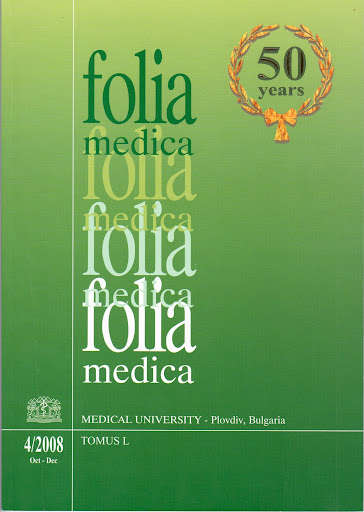
Experimental Study
The pectin-free fraction of Lycium barbarum, or goji berry, strongly inhibits growth in breast cancer cells, and this effect is enhanced by adding polysaccharides.
Georgiev KD, Slavov IJ, Iliev IA.

Experimental Study
The pectin-free fraction from Lycium barbarum fruit exhibits significant antioxidant activity and inhibits the growth of breast cancer cells.
Georgiev KD, Slavov IJ, Iliev IA
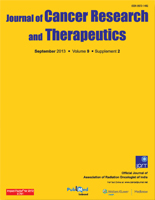
Systematic Review
The use of acupuncture as an adjunct to ameliorate hot flashes is still a relatively sound treatment for breast cancer patients.
Wang XP, Zhang DJ, Wei XD, Wang JP, Zhang DZ.

Meta-Analysis
Dietary carrot intake is associated with a decreased risk of breast cancer.
Chen H, Shao F, Zhang F, Miao Q
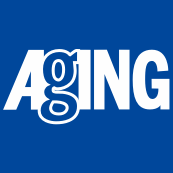
Experimental Study
Matcha green tea potentially inhibits the growth of breast cancer cells by disrupting metabolic action within the cells and reprogramming their activities.
Bonuccelli G, Sotgia F, Lisanti MP

Meta-Analysis
Acupuncture significantly reduces cancer-related fatigue, especially in breast cancer patients and those undergoing anti-cancer treatment.
Zhang, Y., Lin, L., Li, H., Hu, Y., & Tian, L.

Systematic Review
Acupuncture is non-inferior to hormone therapy or other applied relaxation therapies in alleviating the symptoms of menopause for its safety, non-invasive and especially considering the side effect of hormone therapy.
Chien TJ, Hsu CH, Liu CY, Fang CJ.

Systematic Review
The study's analysis of 272 articles comparing Traditional Chinese Acupuncture (TCA) and Sham Acupuncture (SA) for managing hot flashes in menopausal breast cancer patients indicates that while 3 studies leaned towards TCA's effectiveness, 2 showed both interventions to be beneficial.
Carlos, Luís et al.

Systematic Review
Acupuncture appears to be a potentially effective treatment for reducing hot flashes in women diagnosed with breast cancer.
Chen YP, Liu T, Peng YY, Wang YP, Chen H, Fan YF, Zhang L
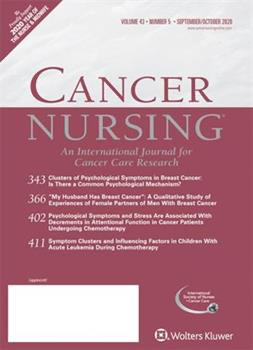
Systematic Review
Acupuncture may be used as a complementary therapy for breast cancer survivors experiencing hot flashes and other menopause-related symptoms.
Chiu, Hsiao-Yean; Shyu, Yuh-Kae; Chang, Pi-Chen, Tsai, Pei-Shan
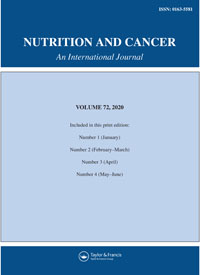
Clinical Study
Pomegranate juice consumption slightly decreases estrone and testosterone levels in normal weight postmenopausal women.
Kapoor R, Ronnenberg A, Puleo E, Chatterton Jr. RT, Dorgan JF, Seeram NP, Sturgeon SR
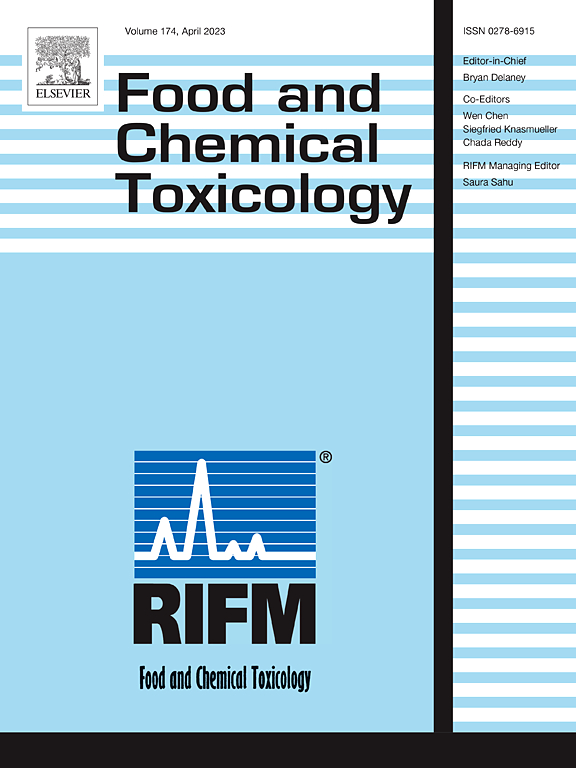
Randomised Controlled Trial
Green tea extract consumption can potentially cause mild adverse reactions, notably nausea, skin conditions, and increased alanine aminotransferase levels.
Dostal AM, Samavat H, Bedell S, Torkelson C, Wang R, Swenson K, Le C, Wu AH, Ursin G, Yuan JM, Kurzer MS

Randomised Controlled Trial
Bee pollen and honey may alleviate menopausal symptoms in breast cancer patients undergoing antihormonal treatment.
MÜNSTEDT KARSTEN, VOSS BENJAMIN, KULLMER UWE, SCHNEIDER URSULA, HÜBNER JUTTA
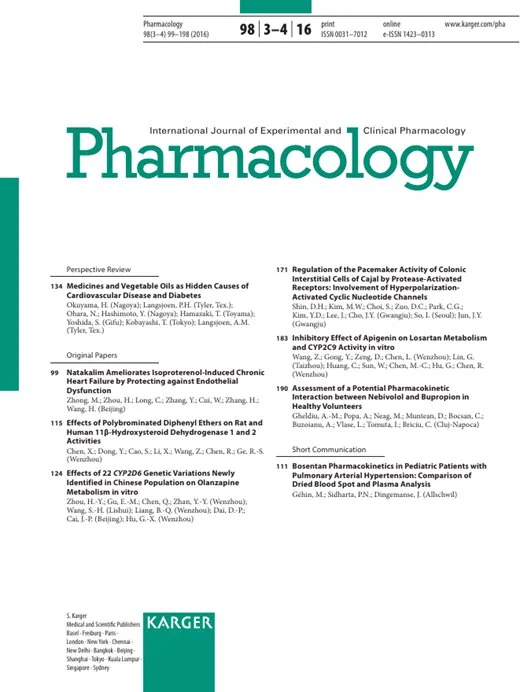
Systematic Review
Green tea polyphenols may enhance effectiveness of specific breast cancer endocrine treatments through both estrogen-dependent and -independent mechanisms.
Yiannakopoulou EC
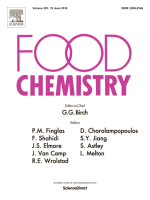
Experimental Study
Adzuki bean exhibited the strongest antiproliferative properties in a dose-dependent manner against all digestive system cancer cell lines, ovary cancer cell SK-OV-3 and breast cancer cell MCF-7 among all legumes tested.
Xu B, Chang SKC
Executive Summary
Write an executive summary in the form of a blog article on the topic of "Research into Chinese medicine treatment for Breast Cancer" summarising the research below and using language that can be easily understood by patients and avoiding medical jargon using a professional and caring tone of voice.
Write an executive summary in the form of a blog article on the topic of "Researched Chinese medicine treatments for Breast Cancer" summarising the research below in an objective and easy to understand way, and using language that can be easily understood by patients. Group the article into Chinese medicine treatments first, followed by nutrition and other treatments. Avoid using medical jargon and use a professional and caring tone of voice.
Write me a concise but easy to understand executive summary on the topic of "Chinese medicine treatments for Breast Cancer" based on the following research that I will give you. Your summary should be 2 paragraphs long in Australian English spelling and include references to the studies.
A Review Article published in 2024 in the journal Life found that Pomegranate extract could potentially benefit women's reproductive health, enhance fertility, regulate menstrual cycles, support pregnancy, and help treat polycystic ovary syndrome. In establishing the potential benefits of pomegranate extract in women's reproductive health, a wide array of methods was employed. Primarily, these included in vitro studies, animal modeling and certain clinical trials. Analyses of the antioxidant properties of the extract were done to ascertain its effectiveness in reducing oxidative stress and consequently, improving fertility. The influence of pomegranate extract on hormonal imbalances and menstrual regulation was also studied. Discussions on the results emphasized the potential of pomegranate extract in supporting women's reproductive health. The extract was found beneficial in enhancing fertility, regulating menstruation and supporting pregnancy. Further, it could help in polycystic ovary syndrome therapy by improving insulin sensitivity and reducing oxidative damage. Its rich nutrient composition was appreciated for potentially fostering placental development and fetal growth, thus possibly mitigating the risk of early birth. Apart from reproductive health, some studies pointed towards pomegranate extract's potential anticancer properties, primarily against breast cancer.
A Animal Study published in 2024 in the journal Nutrients found that Manuka honey has demonstrated the potential to inhibit the proliferation of human breast cancer cells and stimulate apoptosis in these cells. In the experiment, Manuka honey was applied to three different types of cells: MCF-7 human breast cancer cells, MDA-MB-231 breast cancer cells, and non-malignant human mammary epithelial cells. The concentrations applied ranged from 0.3 to 5.0% to observe different effects. In addition to inhibiting cancer cell proliferation, the honey was tested for its ability to cause apoptosis (cell death) among the MCF-7 cells. It was also compared to the effects of tamoxifen, an antiestrogen medication used in breast cancer treatment. The results showed that Manuka honey was able to significantly inhibit the proliferation of MCF-7 cells, though its effects were less pronounced in the MDA-MB-231 breast cancer cells. The non-malignant cells were not affected. The honey's antitumor activity was comparable to that of tamoxifen. Moreover, Manuka honey stimulated apoptosis in the MCF-7 cells. It was also observed that the honey activated AMPK, which inhibits specific cellular growth signals, and reduced STAT3 levels, a protein often elevated in tumors.
A Review Article published in 2023 in the journal Journal of Microbiology and Biotechnology found that Soybean intake can potentially reduce risks of several cancers, type 2 diabetes, osteoporosis, and hot flashes, and it may negatively impact some drug treatments and cause allergies. This research primarily involves review and analysis of current clinical studies focusing on the benefits and risks of soybean ingredients. The method appears to be a systematic review of various epidemiological studies which were investigating the correlation between soybean consumption and the risk of developing multiple types of cancers including breast, prostate, colorectal, ovarian, and lung cancers. Besides cancer, other common diseases such as type 2 diabetes, osteoporosis, and menopausal symptoms like hot flashes were also investigated. Moreover, any potential adverse effects of soybean, including its possible detrimental impact on certain drug treatments and its allergenicity, were also factors of study in these clinical evidences. In the discussion of results, the researchers found a significant inverse association between soybean intake and cancer risks, wherein an increase in the consumption of soybean foods was associated with a reduced likelihood of cancer. Besides showing potential anticancer properties, soybean consumption was found inversely correlated with risks of type 2 diabetes. Soy isoflavones, compounds present in soybeans, also showed potential benefits in the management of osteoporosis and hot flashes. On the other hand, the adverse effects of soybean, including interference with certain drug therapies and causing allergies, were also duly noted. Therefore, the research concludes that while soybean promises several significant health benefits, caution should be exercised for individuals under specific drug treatments or with allergies to soy.
A Review Article published in 2023 in the journal PeerJ found that Crocin, a compound derived from saffron, has shown considerable potential in hindering tumor growth and improving immune status, across various malignant tumors. The methodology for the study involved an in-depth review of modern pharmacological studies that have analyzed the therapeutic effects of crocin, a natural compound that can be extracted from saffron. Various anti-tumor effects were assessed including the induction of tumor cell death (apoptosis), restrictions on tumor cell proliferation, and potential barriers to invasion and metastasis of these cells. The potential for enhancement of sensitivity to chemotherapy and improvement of immune status were also examined. Following the review, the study revealed that crocin has significant anti-tumor properties. It showed that this natural compound can induce apoptosis in tumor cells, inhibit their expansion and progression, and even prevent their invasiveness and metastasis. Furthermore, crocin demonstrated the potential to enhance the body’s responsiveness to chemotherapy and help boost the immune system. These effects were observed across a range of different malignant tumors, including stomach, liver, cervical, breast, and colorectal cancers.
A Systematic Review published in 2023 in the journal Annals of Medicine found that Consuming dairy products might reduce the risk of developing breast cancer. The researchers conducted a systematic literature review where they scrutinized various databases for studies published in English up to January 2022. They began with 82 articles, but only 18 met their pre-set inclusion criteria. The studies varied in type - nine were prospective, seven were retrospective, and two were cross-sectional. The results indicated an inverse relationship between dairy consumption and the risk of developing breast cancer. However, the effect of different types of dairy products and the exact dose-response relationships on breast cancer risk remains unclear. Nevertheless, this review provides a foundation for considering dairy products in preventive strategies to reduce breast cancer occurrence.
A Clinical Study published in 2023 in the journal Antioxidants found that Preclinical studies related to osteoporosis have reported favorable effects of honey on cortical and trabecular bone microstructure, bone strength, and oxidative stress. Honey is able to protect the bone mainly due to antioxidant and anti-inflammatory properties, primarily through its content of polyphenols, which act on several signaling pathways, resulting in anabolic and antiresorptive effects. From the group of polyphenols, the anti-osteoporotic impact of quercetin, kaempferol, and luteolin was recorded. In addition, vitamin D3 and its hydroxyderivatives with antioxidant properties were also detected in honey. Vitamin D3 supplementation was found to have protective effects on the inhibition of bone loss and BMD in both experimental animals and postmenopausal women.
A Clinical Study published in 2023 in the journal Antioxidants found that Clinical studies related to breast cancer have revealed that honey is effective in increasing blood cell counts, interleukin-3 levels, and quality of life. In relation to breast cancer, in vitro experiments revealed the anti-proliferative and pro-apoptotic impact of honey on breast cancer cells, as well as their increased apoptosis. Animal studies have shown that honey reduces the number, growth rate, volume, and tumor weight. Findings from clinical trials reported its immunomodulatory properties showing that honey is effective in increasing leukocyte and platelet counts, IL-3 levels, and quality of life. In this context, the potential role of honey and its oligosaccharides as prebiotics for specific beneficial bacteria might be examined in future clinical studies.
A Review Article published in 2023 in the journal Journal of the Science of Food and Agriculture found that Carrot and carotene consumption could diminish the risk of a wide range of negative health consequences, including multiple types of cancer. An umbrella review methodology was adopted to identify connections between carrot and carotene intake and various health outcomes. We turned to databases such as Web of Science, PubMed, and Embase to find the needed data. The analysis included the collected evidence from both interventional and observational studies that focused on carrots, carotene, and any related health impact. To estimate the summary effect size for each correlation, both random and fixed effects models were employed. The study reviewed a total of 1329 studies and utilized the data from 30 meta-analyses with 26 health outcomes that fit the eligibility requirements. These featured outcomes related to various types of cancer, fractures, age-related cataract, sunburn, and Alzheimer's disease. The associations were analyzed between the health outcomes and the intake of carrots, intake of carotene, and serum carotene levels.
A Systematic Review published in 2021 in the journal BMC Cancer found that D-Limonene, a bioactive compound found in citrus peels, shows potential anticancer activity and is better tolerated in breast cancer patients compared to its derivative perillyl alcohol. For the methodology, the researchers conducted a comprehensive scoping review. They included peer-reviewed journal articles that reported on the effects of d-limonene and its derivatives on breast cancer in human subjects. They retrieved articles from academic databases including PubMed, EMBASE, CINAHL, Web of Science, and Cochrane reviews, and also through iterative review of bibliographies of relevant manuscripts. Titles and abstracts underwent a first round of screening against the inclusion criteria, followed by consensus meetings and full article review which resulted in the selection of a final set of studies. The results were reported in accordance with the PRISMA extension for scoping reviews. In the discussion of the results, out of 367 records, five articles reporting on both phase 1 and phase 2 trials were included in the final review. Studies assessing the effect of d-limonene indicated it was well tolerated in participants and demonstrated that d-limonene concentrated in breast tissue could cause a reduction in tumor cyclin D1 expression, associated with halting tumor proliferation. Trials with perillyl alcohol, however, showed low tolerance and no effect on breast cancer. The analysis did not reveal a meaningful change in serum biomarkers linked with breast cancer, with the exception of an increase in insulin-like growth factor-1 levels, which is typically associated with higher cancer risk.
A Systematic Review published in 2021 in the journal Frontiers in Oncology found that Current evidence suggests that acupuncture might improve breast cancer treatment-related symptoms measured with patient-reported outcomes including quality of life, pain, fatigue, hot flashes, sleep disturbance and anxiety. Out of the 2, 524 identified studies, 29 studies representing 33 articles were included in this meta-analysis. At the end of treatment (EOT), the acupuncture patients’ quality of life (QoL) was measured by the QLQ-C30 QoL subscale, the Functional Assessment of Cancer Therapy-Endocrine Symptoms (FACT-ES), the Functional Assessment of Cancer Therapy–General/Breast (FACT-G/B), and the Menopause-Specific Quality of Life Questionnaire (MENQOL), which depicted a significant improvement. The use of acupuncture in BC patients lead to a considerable reduction in the scores of all subscales of the Brief Pain Inventory-Short Form (BPI-SF) and Visual Analog Scale (VAS) measuring pain. Moreover, patients treated with acupuncture were more likely to experience improvements in hot flashes scores, fatigue, sleep disturbance, and anxiety compared to those in the control group, while the improvements in depression were comparable across both groups. Long-term follow-up results were similar to the EOT results.
A Clinical Study published in 2021 in the journal Molecules found that Pomegranate polyphenols have shown strong potential in preventing and treating breast cancer through various anti-cancer effects. The researchers conducted a systematic review of scientific literature available on PubMed and Google Scholar, that included articles written in English over the past two decades. They focused on the original research articles examining the potential role of pomegranate and its polyphenols in breast cancer prevention and treatment. In total, they selected 28 papers for review, including both clinical and preclinical studies. The research revealed that pomegranate polyphenols display potent anti-cancer properties through several mechanisms on breast cancer cells. These mechanisms include anti-estrogenic, anti-proliferative, anti-angiogenic, anti-inflammatory, and anti-metastatic effects. Additionally, pomegranate extracts could induce cell cycle arrest, cytotoxicity, and inhibit invasion in breast cancer cells. However, findings from two small clinical trials were contradicting. Overall, pomegranate was recognised as a promising natural strategy for managing breast cancer.
A Review Article published in 2021 in the journal International Review of Neurobiology found that Goji berries have significant potential as a natural medicine in anticancer efforts due to their high content of active compounds. The research involved extraction and analysis of various fractions from goji berries to ascertain their impact on different types of cancer. These fractions included polysaccharides, polyphenols, flavonoids, carotenoids and their derivatives, and they were tested against particular types of cancer cells, such as those of breast carcinoma. The effect of these extracts on normal human cells, however, has not been explored. Two distinct stages were mapped out: one with a pectin-free fraction of goji berry extract used to inhibit the growth of two breast cancer cell types, and another phase involving an ethanol extract inhibiting a different breast cancer cell line. In the discussion of results, the study revealed that various extracts from goji berries exhibit antiproliferative properties against different types of cancer cells. Evidence shows that a certain pectin-free fraction of the goji extract inhibited the growth of specific types of breast cancer cells, while an ethanol extract curtailed the proliferation of another type in a time- and dose-dependent manner. The study also found that goji polysaccharides not only influence estrogen metabolism but also activate certain cellular signaling pathways and increase the expression of a certain protein.
A Review Article published in 2020 in the journal Nutrients found that Isoflavones, mainly found in soy-derived products, show beneficial effects on bone health, potential cancer risk reduction, and alleviation of menopausal symptoms, but not on cardiovascular risk. The study examined the potential uses of isoflavones, phenolic compounds mostly found in soy-derived foods and several vegetables. Isoflavones are seen as potential alternative therapies for hormone-dependent disorders due to their near-identical chemical structure to estradiol. These disorders include certain cancers, cardiovascular diseases, and menopausal symptoms. The investigation involved reviewing existing scientific evidence to evaluate the potential effects of isoflavones on these diseases and health concerns. In assessing the results, the review found evidence suggesting that isoflavones could have a beneficial effect on postmenopausal women's bone health, contributing to osteoporosis prevention and treatment. However, observed study results were not entirely conclusive due to discrepancies among study designs. Contrarily, there appeared to be no significant protective effect against cardiovascular risk with soy isoflavones. In terms of cancer, preliminary observations suggested that isoflavones may reduce some types of cancer risks, such as breast and endometrial cancer. Lastly, isoflavones showed a potential role in reducing hot flushes associated with menopause. Concerning safety, most common adverse effects were mild and observed at the gastrointestinal level.
A Systematic Review published in 2020 in the journal Integrative Cancer Therapies found that The pooled results suggested that acupuncture led to moderate improvements in hot flashes, fatigue, and stiffness. Evidence for outcome indicators of symptom management were downgraded by the GRADE system for inconsistency, indirectness, and imprecision in the included RCTs. Nonetheless, acupuncture is a moderately appropriate alternative therapy for hormone therapy–related side effects in breast cancer patients. However, it still lacks large-sample, multicenter, prospective RCTs. Future research should focus on standardizing comparison groups and treatment methods, be at least single-blinded, assess biologic mechanisms, have adequate statistical power, and involve multiple acupuncturists.
A Systematic Review published in 2020 in the journal Evidence-Based Complementary and Alternative Medicine found that This systematic review and meta-analysis provides evidence that acupuncture moxibustion therapy is serviceable and safe in treating breast cancer-related lymphedema. Twelve RCTs with 778 participants were identified for further analysis. On account of the evidence we assessed, the conclusion that can be reached is that acupuncture moxibustion therapy (AMT) could be considered as an alternative option to enhance the efficacy of breast cancer-related lymphedema (BCRL) treatment. Eight trials showed that AMT combined with physiotherapy or functional exercise for the treatment of BCRL significantly improved the total effective rate, in comparison with using conservative treatment alone. Based on changes in the difference of upper limbs before and after treatment, five trials suggested that AMT or AMT plus physical therapy was more effective than physical therapy alone. The differences in arm dimension changes were smaller in patients treated with AMT than those in untreated patients. These results showed that acupuncture and moxibustion enhance the beneficial effects of physical therapy. Moreover, pooled data from five studies showed that AMT (including cupping) had advantage over Western medicine and physiotherapy at improving the quality of life among BCRL patients. Among the included studies, only one trial clearly recorded the adverse events that occurred during the treatment period. It can be said that AMT is basically safe and hardly bring about harm to the human body. Several studies have taken moxibustion as an intervention measure. The results indicated that moxibustion efficiently alleviated the symptoms of edema in BCRL patients, without any obvious adverse events. Hence, after several times of professional guidance, patients could carry out moxibustion by themselves, which is free of time and place restrictions. These findings indicated that the efficacy of AMT was higher compared to other conservative treatments. Apart from this, since the adverse events of AMT were negligible, it was extraordinary attractive to women with BCRL.
A Systematic Review published in 2019 in the journal Climacteric found that Acupuncture significantly alleviated breast cancer treatment-related menopause symptoms for at least 3 months, but not hot flushes. In total, 943 patients from 13 RCTs were analyzed. The meta-analysis showed that acupuncture had no significant long-term maintenance effect on the frequency or severity of hot flushes, but had a significant 3-month maintenance effect of ameliorating menopause symptoms at 3 months after treatment ended. No adverse events were reported.
A Randomised Controlled Trial published in 2019 in the journal The Oncologist found that Acupuncture treatment significantly improves neuropathic symptoms in women suffering from chemotherapy-induced peripheral neuropathy after breast cancer therapy. In this randomized pilot trial, women with stage I-III breast cancer with grade 1 or higher chemotherapy-induced peripheral neuropathy post adjuvant chemotherapy were tested. Patients were split evenly into two groups: an immediate acupuncture group and a control group. Those in the immediate acupuncture arm underwent 18 acupuncture sessions over 8 weeks before the treatment was halted. Conversely, the control group received the usual care over eight weeks before beginning nine acupuncture sessions across the same time span. Different parameters such as sensory scores, neurotoxicity, and pain severity were evaluated at the start, then at 4, 8, and 16 weeks post enrollment. The results, which excluded any statistical references, showed a notable improvement in the immediate acupuncture group in terms of neuropathic symptoms, including sensory scores, neurotoxicity summary score, and pain severity score when observed at the end of eight weeks. No negative side effects were observed during the entire period. This indicates acupuncture as a potential therapeutic option for breast cancer patients suffering from chemotherapy-induced peripheral neuropathy.
A Systematic Review published in 2019 in the journal Journal of Obstetrics and Gynaecology Research found that Acupuncture intervention could significantly improve the treatment outcomes for breast cancer-related lymphedema, regardless of the control treatments used. The methodology of this study began with a detailed survey of public databases, including China Academic Journals Full-text Database, Database of Chinese Sci-Tech Journal, Wanfang, PubMed, Embase and the Cochrane Library, and focused on looking for randomized controlled trials related to the use of acupuncture for the treatment of breast cancer-related lymphedema. Clinical trials on the treatment of this condition, where acupuncture was used in conjunction with drugs or functional exercise, were singled out for inclusion in the study. The assessment of any potential risk of bias and quality was performed by two investigators using Cochrane Handbook standard, accompanied by meta-analysis with the help of Revman software. As for the discussion of the results, the study comprised 13 different studies, enrolling a total of 747 patients. Analysis of these enrolled studies revealed that the use of acupuncture intervention showed an increase in success rate in treating breast cancer-related lymphedema. This was evidenced by an observed improvement in the subjective pain, discomfort, and upper limb swelling in patients who received acupuncture therapy, irrespective of the control intervention used. However, it was mentioned that the majority of the studies used in the assessment contained inconsistent efficacy indicators.
A published in 2019 in the journal Frontiers in Pharmacology found that We showed that Angelica sinensis is not that stimulatory in breast cancer both in vitro and in vivo, though Angelica sinensis should still be used with caution in estrogen receptor-positive breast cancer patients. The present findings provided further scientific evidences, which showed that the estrogenic herb AS are not that stimulatory in breast cancer both in vitro and in vivo, though it should still be used with caution particularly in ER-positive breast cancer patients. This is the first systematic pre-clinical study to illustrate the safety use of AS in breast cancer patients by providing varied levels of evidences.
A Systematic Review published in 2019 in the journal Acupuncture in Medicine found that Acupuncture has been presented as an effective intervention for reducing limb oedema in women post breast cancer surgery. The methodology involved a broad electronic search through six databases for research papers published till November 2017. Only randomized controlled trials focused on the use of acupuncture for breast cancer-related lymphedema were included in the process. Ultimately, six trials, involving a cumulative total of 318 patients, were identified for evaluation. The main outcomes looked at were the pre/post-treatment differences in the diameter of the elbow joint, reductions in upper limb lymphedema and effectiveness index based on arm measurement data in patients with breast cancer. The analysis of results revealed an overall positive effect of acupuncture intervention on the parameters examined. Two of the studies observed a significant reduction in elbow joint diameter and upper limb lymphedema in the acupuncture groups. Another two studies noted a marked difference in the effectiveness index based on arm measurements between the acupuncture and control groups, favoring the former. The fifth study used bioelectrical impedance spectroscopy and reported a significant reduction in lymphedema. The sixth study, however, did not report any significant difference in bioimpedance between the groups. Overall the results suggest that acupuncture could be an effective method for managing limb oedema in patients post breast cancer treatment.
A Experimental Study published in 2019 in the journal Folia Medica found that The pectin-free fraction of Lycium barbarum, or goji berry, strongly inhibits growth in breast cancer cells, and this effect is enhanced by adding polysaccharides. In this study, the researchers isolated three fractions of Lycium barbarum, also known as goji berry, and tested their antioxidant activity using Oxygen Radical Absorbance Capacity and Hydroxyl Radical Averting Capacity assays. After this, the antiproliferative effects of these extracts were evaluated on three separate breast cancer cell lines. To see the influence of different components of the berry, a distinct pectin-free fraction was used and its effects were studied in conjunction with those of added polysaccharides. The results indicate that the pectin-free fraction produced the most significant growth inhibitory effect on the breast cancer cells. This inhibitory effect was found to be enhanced when polysaccharides were added to the pectin-free fraction. A determining factor for the observed effects seemed to be the polyphenolic content of the extracts, with higher content correlating to stronger effects.
A Experimental Study published in 2019 in the journal Folia Medica found that The pectin-free fraction from Lycium barbarum fruit exhibits significant antioxidant activity and inhibits the growth of breast cancer cells. In this study, researchers took three portions from Lycium barbarum fruit – total water, pectin-free, and polysaccharide, and analyzed their antioxidant potential using Oxygen Radical Absorbance Capacity and Hydroxyl Radical Averting Capacity assays. The team also examined the pectin-free and the polysaccharide fraction's antiproliferative effects on non-tumorigenic and tumorigenic breast cell lines through the MTT dye reduction assay. The results revealed that the pectin-free fraction from Lycium barbarum fruit demonstrated growth inhibition in a concentration-dependent manner on the three cell lines. This effect was highly pronounced on the breast cancer cells. The polysaccharide fraction showed limited activity, only reducing the proliferation of one type of breast cancer cell at maximum concentration. Surprisingly, pairing the pectin-free and polysaccharide fraction did not produce a synergistic effect. A relationship was observed between the polyphenolic content in the extracts and the resulting effects, with the pectin-free extract containing the most polyphenols and demonstrating the most potent antioxidant and antineoplastic impact against breast cancer cells.
A Systematic Review published in 2018 in the journal Journal of Cancer Research and Therapeutics found that The use of acupuncture as an adjunct to ameliorate hot flashes is still a relatively sound treatment for breast cancer patients. The therapeutic effect of acupuncture on hot flashes among breast cancer survivors is probably multifactorial, and the results of our research support the possibility that acupuncture could reduce hot flashes for patients suffering from breast cancer.
A Meta-Analysis published in 2018 in the journal Medicine found that Dietary carrot intake is associated with a decreased risk of breast cancer. In order to investigate the relation between carrot intake and the risk of breast cancer, a comprehensive search spanning databases up until September 2017 was performed. Studies were included if they contained risk estimates for the breast cancer risk related to carrot consumption. To collate and analyze data from different studies, random-effects models were used. Publication biases were determined through means such as Begg's funnel plot and Egger's regression asymmetry test. From the search, a total of 10 articles were found that met the criteria and these accounted for 13,747 cases. Upon reviewing these studies, it was noted that the risk of breast cancer was lower for the group with the highest carrot intake when compared with the group with the lowest carrot intake. This association was more pronounced in case-control studies than in cohort studies. The associations did not appear to differ significantly by geographical region, the quality of the study or the method used to assess exposure. Completing the analysis without any single study showed that each study has a minimal effect on the summarised risk. The methodology therefore suggests and supports a link between high dietary carrot intake and reduced breast cancer risk.
A Experimental Study published in 2018 in the journal Aging found that Matcha green tea potentially inhibits the growth of breast cancer cells by disrupting metabolic action within the cells and reprogramming their activities. The research utilized MCF7 cells, a human breast cancer cell line, as a standard model for testing. To understand the effects of Matcha green tea (MGT) at the cellular level, the team conducted two sets of detailed examinations, metabolic phenotyping and proteomics analysis. Metabolic phenotyping explored the effects of the MGT on cellular metabolism, looking at its influence on both oxidative mitochondrial metabolism and glycolytic flux. Proteomics analysis identified specific proteins and enzymes which were affected by the MGT treatment. The findings from the metabolic phenotyping displayed that MGT treatment slowed down both oxidative mitochondrial metabolism and glycolytic flux, pushing cancer cells towards a less active metabolic state. The proteomics analysis discovered specific mitochondrial proteins and glycolytic enzymes down-regulated by the introduction of MGT. Detailed bioinformatics analysis of the proteomics data revealed that the MGT drastically affected mTOR signalling, particularly down-regulating numerous components of the 40S ribosome, suggesting a possibility of MGT being used as an inhibitor of mTOR. Other pathways, including anti-oxidant response, cell cycle regulation, and interleukin signalling, were also significantly affected.
A Meta-Analysis published in 2017 in the journal Supportive Care in Cancer found that Acupuncture significantly reduces cancer-related fatigue, especially in breast cancer patients and those undergoing anti-cancer treatment. In the methodology, seven different medical databases were systematically reviewed for randomized controlled trials concerning the effects of acupuncture on cancer-related fatigue up until November 2016. Two independent reviewers assessed for bias and extracted correlated data with the use of Review Manager 5. Ten trials met the eligibility criteria for the meta-analysis, which incorporated a total of 1327 patients; 733 received acupuncture and 594 served as control. The results showed that acupuncture markedly mitigated fatigue in cancer patients irrespective of whether they were simultaneously undergoing anti-cancer treatment, with particularly substantial effects among those with breast cancer. The duration and frequency of acupuncture sessions varied, but all schedules produced meaningful effects. While a majority of the trials reported no negative events, one highlighted manageable incidents such as spot bleeding and bruising. Overall, acupuncture was found to be a successful method for managing cancer-related fatigue.
A Systematic Review published in 2017 in the journal PLOS One found that Acupuncture is non-inferior to hormone therapy or other applied relaxation therapies in alleviating the symptoms of menopause for its safety, non-invasive and especially considering the side effect of hormone therapy. This meta-analysis of women with breast cancer confirms that acupuncture had no significant effect on the severity of hot flush, but did significantly alleviate the symptoms of menopause. We conclude that acupuncture is non-inferior to hormone therapy or other applied relaxation therapies in alleviating the symptoms of menopause for its safety, non-invasive and especially considering the side effect of hormone therapy. Recent studies show that use of acupuncture does not correlate with increased levels of plasma estradiol. Considering the safety and lack of serious adverse effects associated with acupuncture, in contrast to hormone therapy, acupuncture should be considered for treating hot flush and menopause syndrome in women with breast cancer.
A Systematic Review published in 2016 in the journal Revista Latino-Americana de Enfermagem found that The study's analysis of 272 articles comparing Traditional Chinese Acupuncture (TCA) and Sham Acupuncture (SA) for managing hot flashes in menopausal breast cancer patients indicates that while 3 studies leaned towards TCA's effectiveness, 2 showed both interventions to be beneficial. The study encompassed the analysis of 272 articles from five selected databases, resulting in the inclusion of five manuscripts meeting the eligibility criteria. The primary focus was on comparing the efficacy of Traditional Chinese Acupuncture (TCA) to Sham Acupuncture (SA) in managing hot flashes among menopausal women with breast cancer. Among the selected studies, three indicated that TCA was more effective in reducing the frequency and intensity of hot flashes, while two found both interventions to be beneficial, though not significantly distinct. These studies exhibited considerable diversity in their designs, sample sizes, treatment durations, and acupuncture protocols. TCA appeared to hold promise in mitigating hot flashes, yet several methodological limitations and potential biases within the reviewed studies were noted. Consequently, there's a call for further comprehensive, large-scale, and long-term trials to elucidate TCA's true potential and overcome the limitations observed in the current body of research.
A Systematic Review published in 2016 in the journal Journal of Cancer Research and Therapeutics found that Acupuncture appears to be a potentially effective treatment for reducing hot flashes in women diagnosed with breast cancer. In this systematic review, seven extensive databases including internationally recognized sources like PubMed, Web of Science, and Embase were searched without any language restrictions to identify relevant randomized controlled trials (RCTs) investigating the impacts of acupuncture on hot flashes in women with breast cancer. The timeframe of these searches spanned from the inception of each database to June 2015. The results of the 12 identified RCTs suggested an overall potential therapeutic effect of acupuncture on hot flashes in women with breast cancer. Notably, out of these, three studies highlighted a significant difference compared with control groups while one showed encouraging trends. Six studies suggested no notable difference between acupuncture and control treatments. A further two trials revealed negative results when compared to hormone therapy. A meta-analysis of the results also suggested differences in the number of hot flashes post-treatment and during subsequent follow-ups compared with control groups. In three trials, Kupperman index scores were reported, indicating a significant difference between acupuncture and controls after treatment and during follow-up. However, due to the overall relatively small number and inconsistent quality of the reviewed studies, these results should be interpreted with caution.
A Systematic Review published in 2016 in the journal Cancer Nursing found that Acupuncture may be used as a complementary therapy for breast cancer survivors experiencing hot flashes and other menopause-related symptoms. We analyzed 7 studies involving 342 participants. Acupuncture significantly reduced the frequency of hot flashes and severity of menopause-related symptoms immediately after the completion of treatment. In comparison with sham acupuncture, effects of true acupuncture on the frequency and severity of hot flashes were not significantly different. At 1 to 3 months' follow-up, the severity of menopause-related symptoms remained significantly reduced. Acupuncture may be used as a complementary therapy for breast cancer survivors experiencing hot flashes and other menopause-related symptoms; however, whether acupuncture exerts specific treatment effects other than needling or placebo effects needs to be further evaluated.
A Clinical Study published in 2015 in the journal Nutrition and Cancer found that Pomegranate juice consumption slightly decreases estrone and testosterone levels in normal weight postmenopausal women. In this study, 64 healthy postmenopausal women were randomly assigned to consume 8 ounces of either 100% commercial pomegranate juice or apple juice daily for a period of 3 weeks. The aim was to observe the effect of pomegranate juice intake on the serum levels of various sex hormones and sex hormone-binding globulin. Despite no significant alterations observed in the serum sex hormones or SHBG overall, a subgroup analysis of 38 normal weight participants indicated a significant reduction in estrone and testosterone levels for those who consumed pomegranate juice compared to the control group. The decrease was seen only in this subgroup, and not in the total group of participants. Hence, the direct effect of pomegranate juice on hormonal levels may be more apparent in normal weight postmenopausal women.
A Randomised Controlled Trial published in 2015 in the journal Food and Chemical Toxicology found that Green tea extract consumption can potentially cause mild adverse reactions, notably nausea, skin conditions, and increased alanine aminotransferase levels. In our study, we utilized a randomized, double-blind, and placebo-controlled method. We selected 1075 postmenopausal women to participate over the course of one year. They were randomly assigned to daily consumption of green tea extract containing a specified quantity of epigallocatechin gallate (EGCG) or a placebo. With regards to the results, there was no significant difference observed with general adverse events between those consuming the green tea extract and those taking the placebo. However, it was recognized that those women taking the green tea extract reported a higher incidence of nausea and skin conditions, but a lower occurrence of diarrhea. More women in the green tea extract group experienced an elevation in alanine aminotransferase levels. Overall, adverse events were mainly mild and transient, highlighting a general tolerance for daily consumption of GTE. Yet, it was noted that a small percentage of GTE consumers experienced elevated alanine aminotransferase levels, including a few serious cases.
A Randomised Controlled Trial published in 2015 in the journal Molecular and Clinical Oncology found that Bee pollen and honey may alleviate menopausal symptoms in breast cancer patients undergoing antihormonal treatment. The study used a prospective, randomized crossover trial to compare the effects of a pollen-honey mixture with pure honey in alleviating menopausal symptoms in breast cancer patients undergoing antihormonal treatment. The patients' symptoms were measured using the Menopause Rating Scale. The results showed that a significant number of patients reported improvement in their menopausal symptoms while taking both honey and the pollen-honey mixture. Interestingly, honey, originally intended as a placebo, had similar effectiveness as the pollen in easing symptoms, with both exceeding the expected placebo effect. From these findings, the researchers concluded that bee pollen and honey could be potential aids in managing menopausal symptoms in breast cancer patients on antihormonal therapy.
A Systematic Review published in 2014 in the journal Pharmacology found that Green tea polyphenols may enhance effectiveness of specific breast cancer endocrine treatments through both estrogen-dependent and -independent mechanisms. The methodology used in this systematic review involved a comprehensive search for relevant studies across various electronic databases. The search terms used were tailored to uncover data specifically regarding the interaction of green tea catechins with breast cancer endocrine treatment. Importantly, this review was focused on experimental trials which studied the synergistic effects of green tea catechins and certain breast cancer treatments, namely tamoxifen and raloxifene. The analysis of results indicated that green tea catechins potentially work in conjunction with tamoxifen or raloxifene—used for treating both estrogen receptor-positive and receptor-negative breast cancer—via mechanisms that may depend or not depend on the estrogen receptor. At the same time, the review found no existing evidence showing any interaction of green tea catechins with aromatase inhibitors or fulvestrant. Notably, given their nature as natural compounds and their known safety profile, green tea catechins used along with tamoxifen could constitute a viable direction for enhancing chemoprevention, adjuvant, and metastatic breast cancer treatments.
A Experimental Study published in 2012 in the journal Food Chemistry found that Adzuki bean exhibited the strongest antiproliferative properties in a dose-dependent manner against all digestive system cancer cell lines, ovary cancer cell SK-OV-3 and breast cancer cell MCF-7 among all legumes tested. This research involved comparing the health-promoting effects of various food legumes. The Cellular Antioxidant Activity (CAA) was assessed using a fluorescence microplate reader and in vitro animal cell cultivation. The antiproliferative properties against cancer cells were evaluated through the MTT method in an in vitro cell culture system. Additionally, the study quantified phytochemicals (total phenolic, procyanidin, saponin, and phytic acid) and chemical antioxidant activities (DPPH free radical scavenging activity, oxygen radical absorbing capacity, peroxyl radical scavenging capacity). The results indicated significant variations in phytochemical and antioxidant activities among different legumes. Notably, adzuki bean demonstrated the strongest dose-dependent antiproliferative effects against various cancer cell lines, including those from the digestive system, ovary, and breast. Meanwhile, black soybean showed the highest levels of saponin, phytic acid, and the strongest cellular antioxidant activities. These findings suggest that food legumes, particularly adzuki beans and black soybeans, are promising as natural antioxidants for health promotion and cancer prevention.
Moderation Tools
Topic
Sign In
Users not signed in are limited to viewing the 5 most recent items of content.